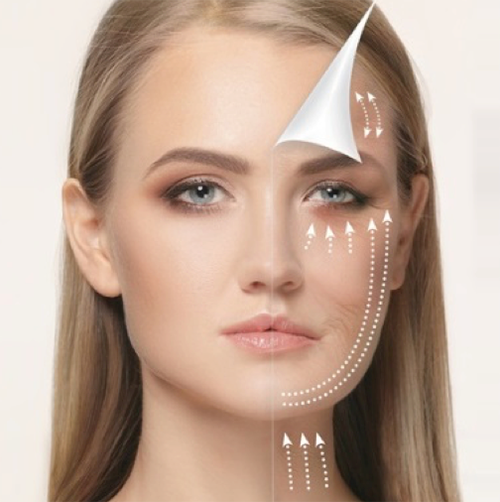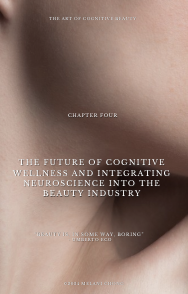Fight the Aging of Skin with Epigenetics

Epigenetic effects relate to the switching ‘on’ or ‘off’ of genes without affecting the DNA itself. For example, every individual is unique according to their individual DNA composition. It contains all instructions for how the organism functions (how our body functions, including our skin, collagen and elastin synthesis) as well as how we look. However, DNA is a highly complex sequence with several chemical ‘tags’ along its structure that can be marked ‘readable’ or ‘not readable’.
When ‘readable’, that function is considered switched ‘on’; and certain bodily functions will occur. When ‘readable’ or ‘on’, it doesn’t actually change the DNA sequence, but instead, makes a part of the structure active and its instructions accessible.
The epigenome regulates this functionality, as does the much more widely known, micro-RNA. In this way, epigenetics utilizes the DNA coding already present in the human body but can be affected by:
− Diet
− Lifestyle, including stress effects and poor sleep
− Environment, especially where protective mechanisms need to be activated; for example, due to UV exposure or other environmental impacts
− Age
− Cellular metabolism and division
Where these impacts are negative and/or the cells age, the epigenome tags relative to skin cell renewal, collagen or elastin synthesis may be turned ‘off’ or at least not function as they did when the organism was younger. These results in a reduction of cell turnover, renewal, and proliferation – which ultimately lead to other age-related effects, we commonly see, such as less supple complexion and the formation of fine lines and wrinkles.
Now fortunately, we have a new science that can effectively reverse the signs of aging for healthy and younger-looking skin. Let's understand that thoroughly…
Epigenetics in Personal Care
| In the personal care industry, epigenetic science refers to the use of specific active ingredients that are able to modify cellular activity for visible skin benefits. For example, some beneficial cellular modifications specific to materials used in cosmeceutical personal care products may include: − Cell proliferation stimulated to improve tissue regeneration − Regeneration of skin cells in-spite of their age – enabling older skin cells to mimic the activity of younger skin cells, which results in a more youthful appearance, and/or − Stimulating skin renewal and turnover |
Improvements to skin tissue regeneration, revitalized skin cell function, and renewed skin cells - all have noticeable visual results: younger, smoother looking skin. It’s as if a younger cell functioning is suddenly switched back ‘on’; and cells are then instructed to proliferate and regenerate as if much younger.
Original Article from April 4, 2018 - by Belinda Carli - SpecialChem.com
Also in MC2 BLOG

Welcome to The Future of Neuro Beauty
The understanding of Cognitive Beauty opens new possibilities for beauty treatments that go beyond surface-level aesthetics and delve into the underlying neurobiology of beauty and the diverse world of aesthetics.

Your Skin Is A Quantum Communicator
Your skin is a sensory force field, constantly receiving and emitting powerful signals. It’s how you interact with the world and how the world interacts with you.
Your skin is a quantum communicator—it picks up vibrations, temperature changes, even emotional energy from others - Melani Chong

The Skin - Brain Axis - How It works
Melani Chong Neuro Beauty Expert ::: The Skin-Brain Superhighway
Did you know your skin and brain have a hotline to each other? Yep, they're chatting 24/7 through a superhighway of nerves and biochemicals. Stress, mood, and even how well you sleep can affect your glow-up game.
Because understanding this connection gives you the power to take control of your skin's story. Managing stress, sleeping well, and using neurocosmetic ingredients can help keep both your mind and skin in harmony.

